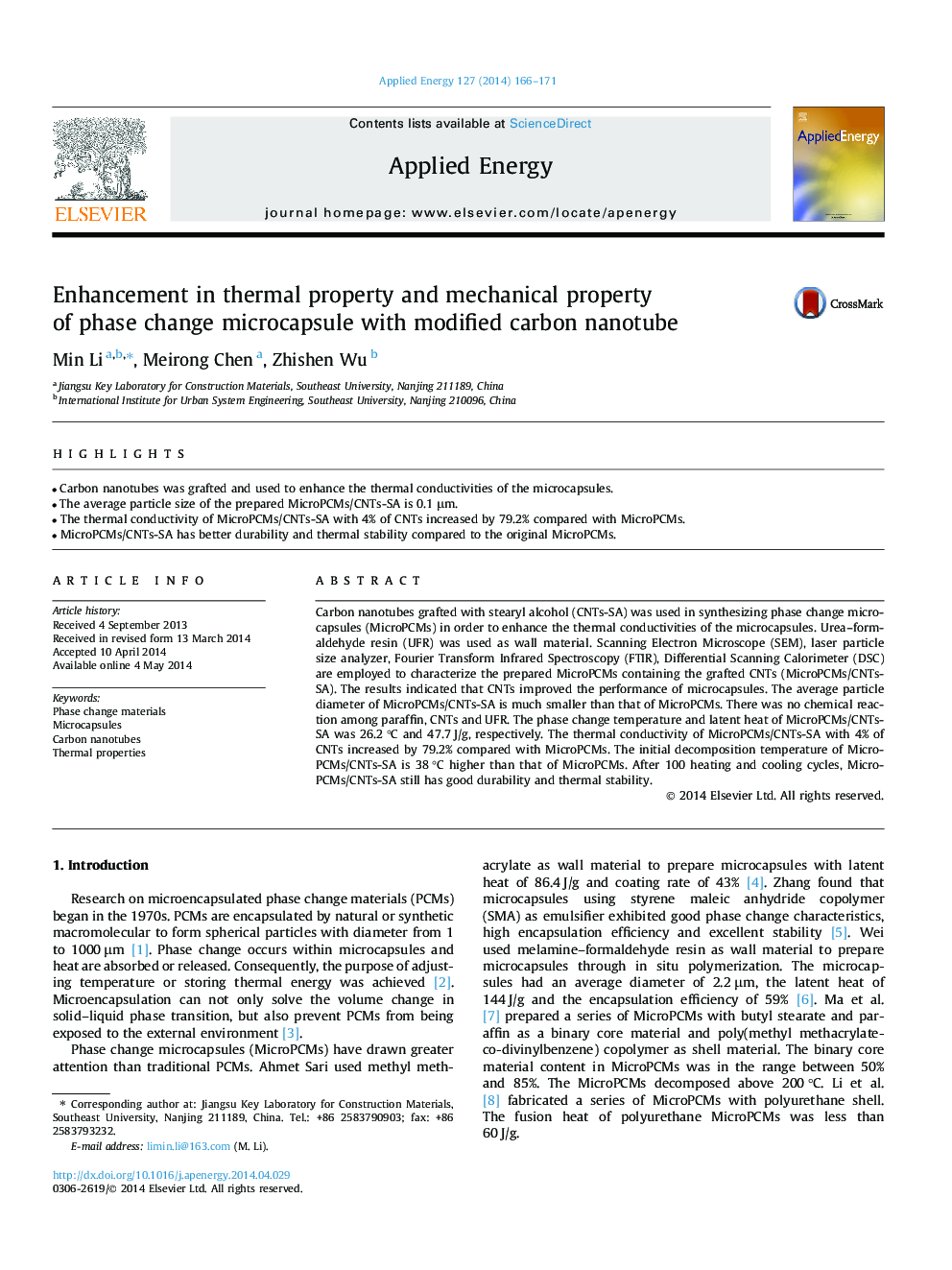| Article ID | Journal | Published Year | Pages | File Type |
|---|---|---|---|---|
| 242749 | Applied Energy | 2014 | 6 Pages |
•Carbon nanotubes was grafted and used to enhance the thermal conductivities of the microcapsules.•The average particle size of the prepared MicroPCMs/CNTs-SA is 0.1 μm.•The thermal conductivity of MicroPCMs/CNTs-SA with 4% of CNTs increased by 79.2% compared with MicroPCMs.•MicroPCMs/CNTs-SA has better durability and thermal stability compared to the original MicroPCMs.
Carbon nanotubes grafted with stearyl alcohol (CNTs-SA) was used in synthesizing phase change microcapsules (MicroPCMs) in order to enhance the thermal conductivities of the microcapsules. Urea–formaldehyde resin (UFR) was used as wall material. Scanning Electron Microscope (SEM), laser particle size analyzer, Fourier Transform Infrared Spectroscopy (FTIR), Differential Scanning Calorimeter (DSC) are employed to characterize the prepared MicroPCMs containing the grafted CNTs (MicroPCMs/CNTs-SA). The results indicated that CNTs improved the performance of microcapsules. The average particle diameter of MicroPCMs/CNTs-SA is much smaller than that of MicroPCMs. There was no chemical reaction among paraffin, CNTs and UFR. The phase change temperature and latent heat of MicroPCMs/CNTs-SA was 26.2 °C and 47.7 J/g, respectively. The thermal conductivity of MicroPCMs/CNTs-SA with 4% of CNTs increased by 79.2% compared with MicroPCMs. The initial decomposition temperature of MicroPCMs/CNTs-SA is 38 °C higher than that of MicroPCMs. After 100 heating and cooling cycles, MicroPCMs/CNTs-SA still has good durability and thermal stability.
